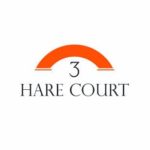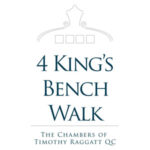Continue reading "Beneficial ownership: Marring the deal"
Beneficial ownership: Marring the deal

In 1986, a farm known as Cefn Coed was purchased by Mr and Mrs Williams and one of their sons, the appellant. There was no express declaration of trust. Mr and Mrs Williams and the appellant were in a partnership and the partnership paid the mortgage on Cefn Coed. The wills of Mr and Mrs Williams dealt with Cefn Coed as though it was held on a tenancy in common in equal shares and Mr Williams was found to have served a notice of severance of any joint tenancy before his death. Mrs Williams and then Mr Williams passed away. It was determined that Cefn Coed was not a partnership asset but,...
In 1997 the respondent and the appellant jointly purchased a property, contributing to the purchase price equally. The appellant and his family occupied the property. In 2007 the respondent was investigated for benefit fraud, and represented to the local authority that he had no beneficial interest in the property, being merely a nominal trustee for the appellant. He repeated that assertion in evidence before the Magistrates’ Court in defence of criminal charges, and later at the First-tier Tribunal in other proceedings. In March 2007 the respondent signed a form TR1 purporting to ...
A was survived by C, his sister; H, with whom he had had a relationship; E and F, who were the daughters of A and H; B, with whom A had also had a relationship; and G, the son of A and B. C was one of the executors of A’s will. Each of A and C owned 50% of the shares in X Ltd (the company) and on A’s death C remained a director and was in control of the company. During A’s lifetime, a property (Property 1) was acquired in his name and remained so at his death.
There were three claims following A’s death: (1) H claimed to be the beneficial owner of Property 1 (the property claim); ...

Continue reading "Beneficial ownership: Marring the deal"

Continue reading "TOLATA 1996: A holistic approach"
The claim related to the estate of Mr Bhusate who died on 28 April 1990. His first wife (Mrs Bhusate) had died in 1971. The 1st to 5th defendants were Mr Bhusate’s children by his marriage to Mrs Bhusate. The claimant was his third wife. The 6th defendant was the only child of Mr Bhusate and the claimant.
Mr Bhusate died intestate. Letters of administration were granted to the claimant and the 1st defendant on 12 August 1991. The estate principally comprised a property in London where the claimant and Mr Bhusate lived (the property). The property remained registered in Mr Bhusate’...

Continue reading "Jointly Held Assets: Owning it"

Continue reading "Cohabitants: Seeking clarity"